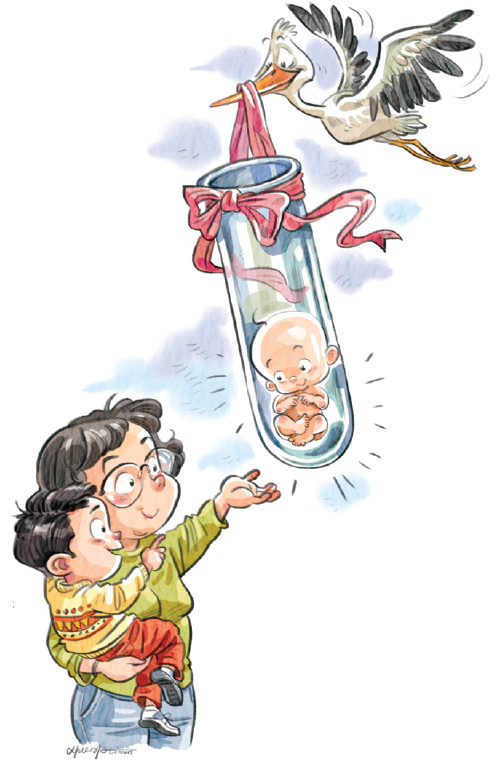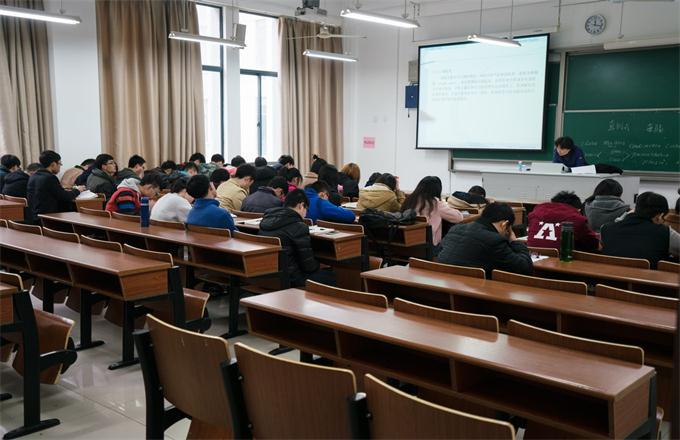Surrogacy not sole solution for infertility
 |
| LI MIN/CHINA DAILY |
The number of women conceiving at a relatively advanced age in China rose from 0.9 percent in 1995 to 10 percent in 2015 according to recent reports. But since 60 percent of the about 45 million women eligible to have a second child are more than 35 years old-with 50 percent of them being above 40-many couples that can avail of the new family planning policy may be unable to have a second child.
To help the eligible couples to have a second child, some media reports have suggested that the regulations be changed to allow surrogacy.
But instead of allowing surrogacy, the government should invest more in scientific research to improve the level of assisted reproductive technology, so as to help eligible couples to have a second child.
Out of moral and ethical considerations, China has banned surrogacy. In other words, the authorities have prohibited infertile couples from "borrowing" other women's wombs to have children, which to a certain degree is a rational decision.
First, from the medical perspective, in surrogacy even if an infertile couple provide the sperm and eggs for the embryo, the woman giving birth to the child will be a non-family member. The difference between surrogacy and test tube baby technology is that in vitro fertilization, or IVF, takes place in a laboratory, after which the fertilized eggs are inserted into the womb of the biological mother, who then gives birth to the child.
In surrogacy, however, the fertilized eggs (or sperm) are inserted into another woman's uterus to help develop the embryo, which could lead to biological relation disorder of the child. If fertilized eggs are used in surrogacy, then the baby's parents can surely be identified. But if only sperm is injected into the surrogate mother's uterus, the identification of the child's biological mother and legal mother will become inconsistent, which will give rise to unavoidable disputes in which no one's legitimate interests can be protected.
Second, from the legal perspective, if there is no blood relationship between the child and the parents, there won't be any fundamental difference between parents and their surrogate child and parents and their adopted child. This is to say that except for psychological comfort, couples who have a child with the help of a surrogate mother are no different from those who simply adopt a child.
Many scholars say couples who have crossed a certain age face certain difficulties when it comes to fertility, and argue that surrogacy can help fulfill their aspiration to have a child of their own. But the problem is that since such couples cannot provide reproductive sperm and eggs, their surrogate children will have no blood relationship with their parents. And such relationships are not protected by the law.
Some scholars say China should learn from the experiences of developed countries and adopt a voluntary policy allowing surrogate mothers to help infertile couples have a child without receiving any reward. But such a policy would only provide self-consolation for infertile couples.
The fact is, couples who have reached a relatively advanced age can adopt a child in accordance with the provisions of the adoption law and relevant procedures. On the one hand, such couples can have the satisfaction of having a child (or second child). On the other, they can seek the help of law to get support for their adoptive children.
In this context, the Standing Committee of the National People's Congress, the country's top legislature, should amend the Adoption Law to moderately relax the conditions for adoption, in order to satisfy the desire of relatively old couples to have a second child.
The authorities should also take measures to advance the level of reproductive technology used in China. And the State Council, China's Cabinet, should employ technological teams to tackle the problem by intensifying scientific research to help relatively old couples to overcome their infertility problems. To start with, it should invite experts from related fields to conduct all-round scientific research and put forward systematic solutions.
The author is a professor of law at Zhongnan University of Economics and Law.





















